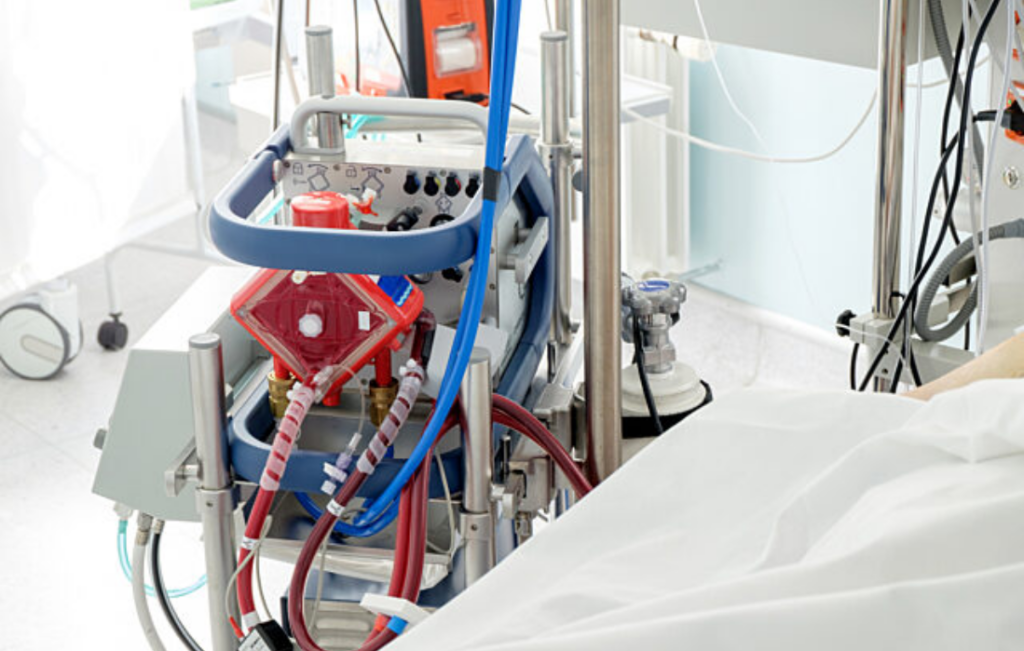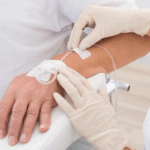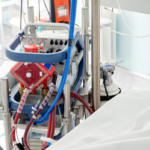
With technology playing a leading role in the field of critical care medicine, the survival of critically ill patients has seen marked improvements. Among the technologies, Extracorporeal Membrane Oxygenation (ECMO) stands out as a life-sustaining therapy for patients who suffer from catastrophic respiratory or cardiac failure. The purpose of this blog is to enlighten patients and their loved ones about ECMO, intensive care, and why it should be performed with professional medical care.
What is ECMO?
Extracorporeal Membrane Oxygenation (ECMO) is a sophisticated life-support system employed when a patient’s heart or lungs are unable to function properly. It serves as an artificial lung and heart, assuming their functions temporarily to enable the body to heal. ECMO is normally applied in ICUs (Intensive Care Units) for patients with conditions like severe pneumonia, ARDS (Acute Respiratory Distress Syndrome), heart failure, or complications following cardiac surgery.
Dr. Amit Kumar Choudhary, a Critical Care Medicine specialist, says that ECMO is bridge therapy—it doesn’t treat the underlying condition but is a vital intervention as physicians address the initial disease.
How Does ECMO Work?
The ECMO machine takes blood from the patient’s body, oxygenates it outside of the body with an artificial lung (oxygenator), and then returns the blood, which is now full of oxygen, to the patient. It maintains the oxygen supply to the body even when the heart or lungs are critically damaged.
There are two main forms of ECMO:
Veno-Arterial (VA) ECMO – Utilized for severe heart failure or cardiac arrest patients, supporting both the lungs and heart.
Veno-Venous (VV) ECMO – Utilized for severe cases of lung failure, giving respiratory support while the heart remains working.
When is ECMO Necessary?
ECMO is indicated in patients who:
• Develop severe respiratory failure that cannot be treated by ventilator assistance.
• Develop cardiogenic shock secondary to heart failure.
• Develop severe pneumonia, ARDS, or complications of COVID-19.
• Are recovering from advanced cardiac operations and require temporary heart-lung assistance.
• Have a high risk of death from cardiac arrest or multiple organ failure.
According to Dr. Amit Kumar Choudhary, MD in Anesthesia and a DrNB in Critical Care Medicine, ECMO needs to be started early in patients who are eligible. How early ECMO is started is critical in deciding survival rates.
The Importance of Expert Critical Care in ECMO Management
Managing ECMO therapy requires highly specialized critical care expertise. The process involves continuous monitoring of oxygen levels, blood pressure, anticoagulation therapy to prevent clotting, and regular assessments to determine when ECMO support can be weaned off.
In Pune, Dr. Amit Kumar Choudhary and his staff conduct ECMO treatment under rigorous medical guidelines to maximize patient outcomes while maintaining minimal risks of bleeding, infections, or organ injury. Having a seasoned critical care expert is essential in successfully treating with ECMO therapy.
Potential Risks and Complications of ECMO
Though ECMO is a lifesaving technique, there are potential risks involved, such as:
• Bleeding complications from anticoagulant therapy.
• Infection from extended catheter insertion.
• Formation of blood clots, leading to strokes or embolisms.
• Damage to organs as a result of altered circulation.
• With close medical monitoring and sophisticated ICU therapy, these risks can be avoided, and the patient can receive the best possible outcome.
Life After ECMO: What to Expect?
When a patient is out of ECMO and recovers, post-ICU rehabilitation plays an important role. Physical therapy, respiratory therapy, and regular follow-ups might be necessary for the patients to check their heart and lung functioning. Psychological counseling is also needed since prolonged ICU stay can be stressful for both the patients and family members.
Dr. Amit Kumar Choudhary stresses that holistic post-ECMO care is of central importance to guarantee long-term recovery and enhanced quality of life after critical illness.
Summary
ECMO is a revolutionary technology that has revolutionized the field of critical care, providing a lifeline to patients with severe respiratory and cardiac failure. With proper management, such as that provided by Dr. Amit Kumar Choudhary, a specialist in Critical Care Medicine, MD in Anesthesia, and a DrNB in Critical Care Medicine, ECMO can greatly enhance survival rates and recovery outcomes.
For Pune patients and patients all over, knowledge of ECMO and its use in critical care is imperative. With proper intervention and expertise, this technology of life-saving continues to hold hope for critically ill patients and their families.




